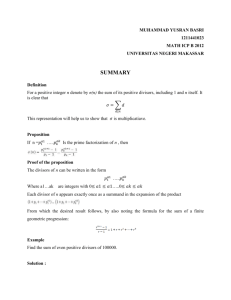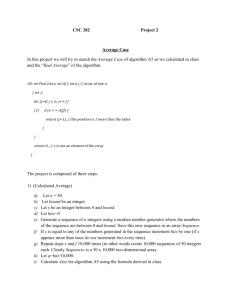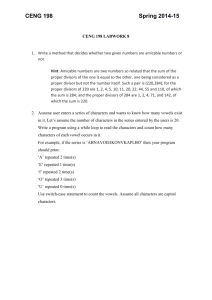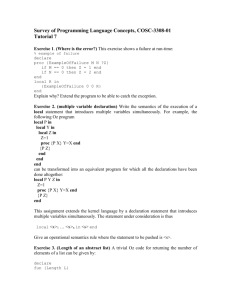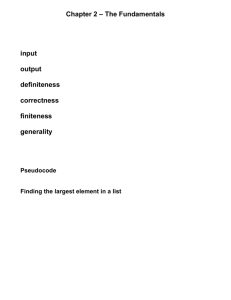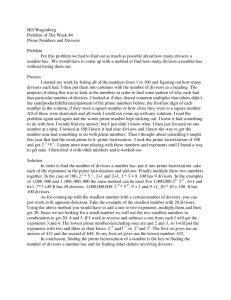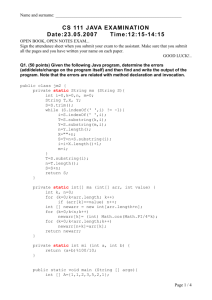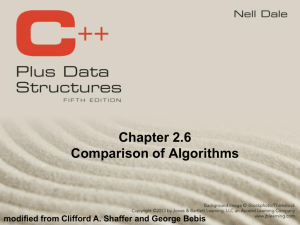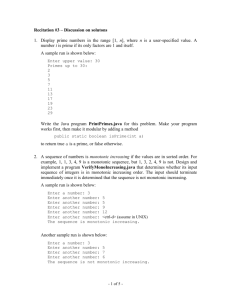Week #9 Homework
advertisement
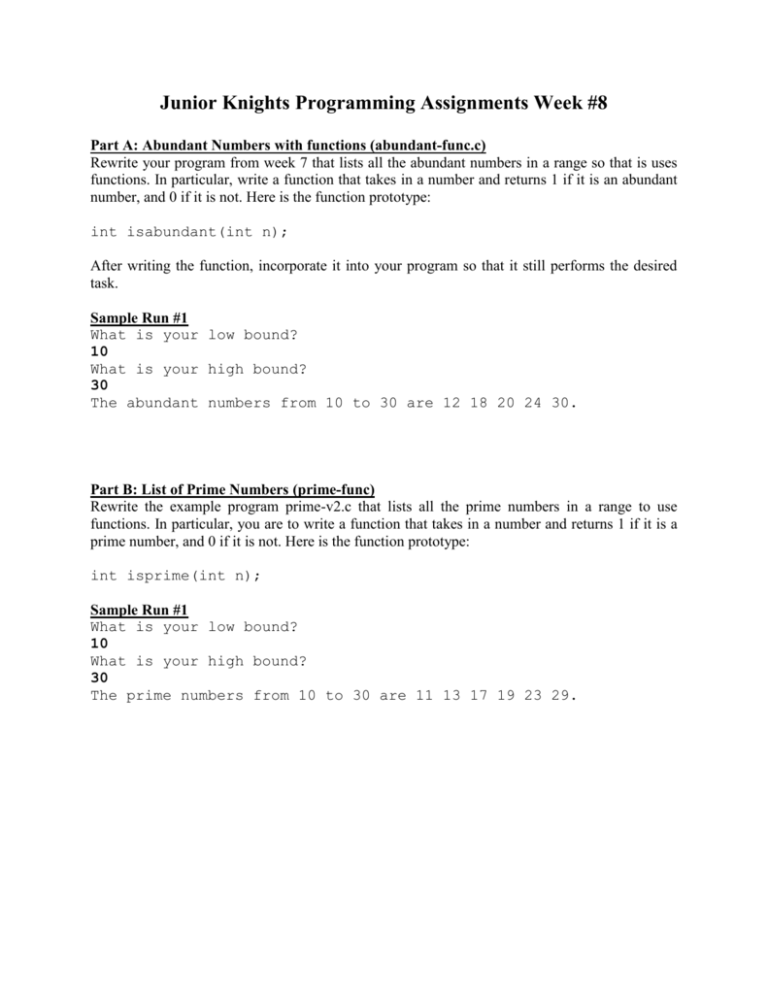
Junior Knights Programming Assignments Week #8 Part A: Abundant Numbers with functions (abundant-func.c) Rewrite your program from week 7 that lists all the abundant numbers in a range so that is uses functions. In particular, write a function that takes in a number and returns 1 if it is an abundant number, and 0 if it is not. Here is the function prototype: int isabundant(int n); After writing the function, incorporate it into your program so that it still performs the desired task. Sample Run #1 What is your low bound? 10 What is your high bound? 30 The abundant numbers from 10 to 30 are 12 18 20 24 30. Part B: List of Prime Numbers (prime-func) Rewrite the example program prime-v2.c that lists all the prime numbers in a range to use functions. In particular, you are to write a function that takes in a number and returns 1 if it is a prime number, and 0 if it is not. Here is the function prototype: int isprime(int n); Sample Run #1 What is your low bound? 10 What is your high bound? 30 The prime numbers from 10 to 30 are 11 13 17 19 23 29. Part C: Number of Divisors (numdiv-func) Write a program that asks the user to enter a range of numbers, and determines which number in that range has the most divisors. In writing your program, write the following function int numdivisors(int n) This function should return the number of integers in between 1 and n, inclusive that divide evenly into n. (For example, if n were 12, the function should return 6, since 12 had the following 6 divisors: 1, 2, 3, 4, 6, 12.) If two different numbers in the range have the same number of divisors, your program is to print the smallest of the numbers. Sample Run #1 What is your low bound? 10 What is your high bound? 30 The number with the most divisors is 24. It has 8 divisors. Part D: Summing Arithmetic Sequences (sumseq-func.c) For this program, you'll prompt the user to enter the first term of an arithmetic sequence, the common difference and the number of terms in the sequence. You'll then just print the sum of the sequence. Write a function with the following prototype that takes in these three values and returns the corresponding sum. The prototype is given below: int arithsum(int first, int diff, int numterms); As the names indicate, the first input value is the first term in the sequence, the second input value is the common difference and the last input value is the number of terms in the sequence. Sample Run #1 What is the first term of your sequence? 13 What is the common difference of your sequence? 4 How many terms are there in your sequence? 6 The sum of the sequence is 138.
